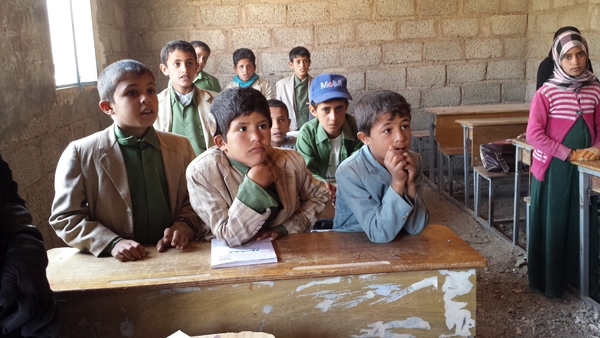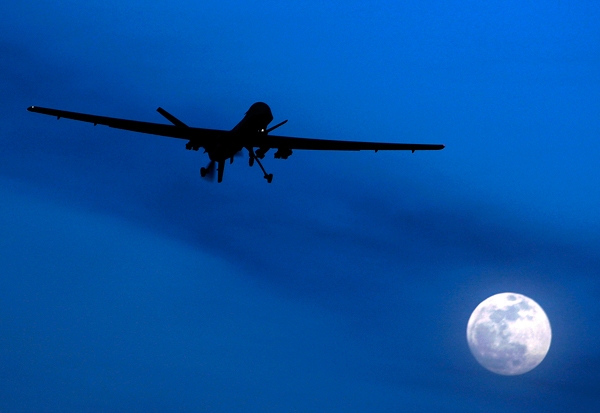The people of Yemen can hear destruction before it arrives. In cities, towns and villages across this country, which hangs off the southern end of the Arabian Peninsula, the air buzzes with the sound of American drones flying overhead. The sound is a constant and terrible reminder: a robot plane, acting on secret intelligence, may calculate that the man across from you at the coffee shop, or the acquaintance with whom you've shared a passing word on the street, is an Al Qaeda operative. This intelligence may be accurate or it may not, but it doesn't matter. If you are in the wrong place at the wrong time, the chaotic buzzing above sharpens into the death-herald of an incoming missile.
Such quite literal existential uncertainty is coming at a deep psychological cost for the Yemeni people. For Americans, this military campaign is an abstraction. The drone strikes don't require U.S. troops on the ground, and thus are easy to keep out of sight and out of mind. Over half of Yemen's 24.8 million citizens - militants and civilians alike - are impacted every day. A war is happening, and one of the unforeseen casualties is the Yemeni mind.
Symptoms of post-traumatic stress disorder, trauma and anxiety are becoming rampant in the different corners of the country where drones are active. "Drones hover over an area for hours, sometimes days and weeks," said Rooj Alwazir, a Yemeni-American anti-drone activist and cofounder of Support Yemen, a media collective raising awareness about issues afflicting the country. Yemenis widely describe suffering from constant sleeplessness, anxiety, short-tempers, an inability to concentrate and, unsurprisingly, paranoia.
Alwazir recalled a Yemeni villager telling her that the drones "are looking inside our homes and even at our women.'" She says that, "this feeling of infringement of privacy, combined with civilian casualties and constant fear and anxiety has a profound long time psychological effect on those living under drones."
Last year, London-based forensic psychologist Peter Schaapveld presented research he'd conducted on the psychological impact of drone strikes in Yemen to a British parliamentary sub-committee. He reported that 92 percent of the population sample he examined was found to be suffering from post-traumatic stress disorder - with children being the demographic most significantly affected. Women, he found, claimed to be miscarrying from their fear of drones. "This is a population that by any figure is hugely suffering," Schaapveld said. The fear of drones, he added, "is traumatizing an entire generation."
Throughout Yemen, it seems, the endless blue heaven above has become a bad omen.





Reader Comments
to our Newsletter